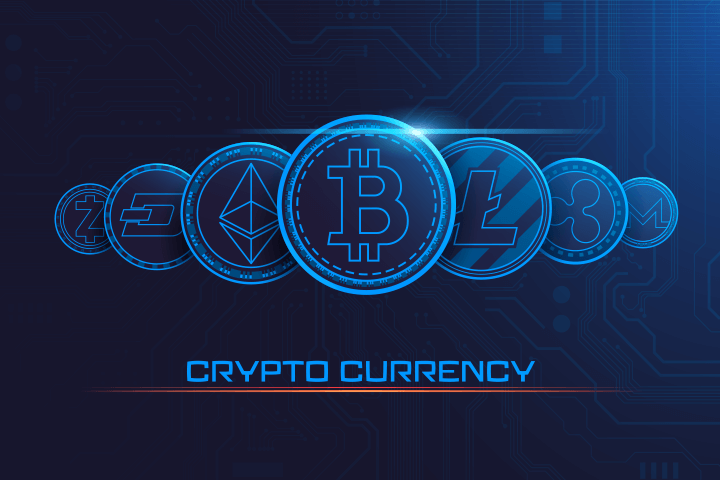Types of Cryptocurrencies
Cryptocurrency, also known as digital currency, is an innovative form of payment that operates virtually and relies on cryptographic techniques to secure transactions. Unlike traditional fiat currencies, cryptocurrencies operate without the oversight of a central or regulatory authority. Instead, they utilize a decentralized peer-to-peer (P2P) network to record transactions and introduce new coins into circulation.
At the core of cryptocurrencies is the concept of blockchain technology. A blockchain serves as a distributed public ledger, maintaining a transparent record of all transactions conducted by currency holders. Each transaction is securely recorded and verified by network participants, ensuring transparency and immutability.
Cryptocurrencies are stored in digital wallets, which contain both private and public keys. These keys are used to authenticate and authorize transactions on the blockchain network. Private keys provide access to the owner’s funds, while public keys serve as addresses for receiving payments.
Overall, cryptocurrencies offer a decentralized and secure alternative to traditional forms of payment, revolutionizing the way financial transactions are conducted in the digital age.

Types of Altcoins
Cryptocurrencies:
Cryptocurrencies serve as a means of payment, facilitating the transmission of value across a decentralized network of users. Often referred to as digital money, cryptocurrencies enable peer-to-peer transactions without the need for intermediaries such as banks or financial institutions.
While Bitcoin and Ethereum are prominent examples, many alternative cryptocurrencies, known as altcoins, also function in this manner. Altcoins encompass a diverse range of digital currencies that operate outside the realm of traditional fiat currencies, offering users various features and functionalities beyond those provided by Bitcoin or Ethereum.
Tokens:
Within the realm of cryptocurrencies and blockchain technology, there exist tokens that serve distinct purposes beyond functioning as a form of money. One such example is tokens issued as part of an initial coin offering (ICO), which represent ownership stakes in blockchain projects or decentralized finance (DeFi) initiatives. These tokens may be considered security tokens if their value is linked to the performance or success of the underlying company or project, akin to traditional securities such as stocks.
Additionally, there are tokens with specific use cases or functionalities tailored to address particular needs within the blockchain ecosystem. For instance, Storj tokens enable individuals to share files securely across a decentralized network, while Namecoin facilitates a decentralized Domain Name System (DNS) service for internet addresses. These tokens, known as utility tokens, serve practical purposes within their respective platforms or networks.
Despite these distinctions, it is worth noting that traders and lay investors may not always differentiate between the various types of tokens, as they often trade on cryptocurrency exchanges in a similar manner. While knowledgeable users may appreciate the nuanced differences between security tokens and utility tokens, casual observers may overlook these distinctions in the fast-paced and dynamic world of cryptocurrency trading.
Which is the Most Popular Cryptocurrency?
There is a wide range of cryptocurrencies available in the market today, each with its own unique features and use cases. The choice of which cryptocurrency to use depends on individual preferences, requirements, and the specific application or use case at hand.
There is not a single crypto which we can define as the “best” because each currency has its own unique features. Here’s an overview of some of the most popular cryptocurrencies and their respective applications:
- Bitcoin (BTC): As the first and most well-known cryptocurrency, Bitcoin serves primarily as a digital store of value and medium of exchange. It is widely accepted as a decentralized form of money and is used for various purposes, including remittances, online purchases, and investment.
- Ethereum (ETH): Ethereum is a decentralized platform that enables the creation and execution of smart contracts and decentralized applications (DApps). It has a native cryptocurrency called Ether, which is used to power transactions and execute smart contracts on the Ethereum network.
- Ripple (XRP): Ripple is a digital payment protocol designed for fast and low-cost cross-border transactions. It aims to facilitate seamless money transfers between financial institutions and reduce settlement times and fees associated with traditional payment systems.
- Litecoin (LTC): Created as the “silver to Bitcoin’s gold,” Litecoin is a peer-to-peer cryptocurrency that offers faster transaction confirmation times and lower transaction fees compared to Bitcoin. It is often used for everyday transactions and micropayments.
- Cardano (ADA): Cardano is a blockchain platform known for its focus on scalability, interoperability, and sustainability. It aims to provide a secure and scalable infrastructure for the development of decentralized applications and smart contracts.
- Polkadot (DOT): Polkadot is a multi-chain blockchain platform that enables interoperability between different blockchains. It allows independent blockchains to share information and assets, fostering a more connected and scalable decentralized ecosystem.
- Chainlink (LINK): Chainlink is a decentralized oracle network that enables smart contracts to securely interact with external data sources. It serves as a bridge between blockchain networks and real-world data, facilitating the execution of complex and reliable smart contracts.
- Binance Coin (BNB): Binance Coin is the native cryptocurrency of the Binance exchange, one of the largest cryptocurrency exchanges in the world. It is used to pay for transaction fees, participate in token sales on the Binance Launchpad, and access various services within the Binance ecosystem.
- Solana (SOL): Solana is a high-performance blockchain platform designed for decentralized applications and crypto projects. It boasts fast transaction speeds and low fees, making it suitable for building scalable and efficient decentralized applications.
- Dogecoin (DOGE): Initially created as a meme cryptocurrency, Dogecoin has gained popularity as a digital currency for tipping and charitable donations. It is often used for microtransactions and community-driven initiatives.
Why Is Bitcoin Still the Most Important Cryptocurrency?
Despite the emergence of thousands of competitors in the cryptocurrency space, Bitcoin, as the pioneering cryptocurrency, continues to maintain its dominant position in terms of usage and economic value. Since its inception, Bitcoin has established itself as the leading digital currency, with none of its competitors matching its market capitalization and overall value.
Bitcoin’s enduring prominence can be attributed to several factors. Firstly, it enjoys widespread recognition and acceptance as the first cryptocurrency to gain mainstream attention. Its name recognition and established history give it a level of credibility and trust that other cryptocurrencies strive to achieve.
Additionally, Bitcoin’s decentralized nature and limited supply contribute to its value proposition. As a decentralized digital currency, Bitcoin operates on a peer-to-peer network without the need for intermediaries, providing users with a level of financial autonomy and censorship resistance. Furthermore, Bitcoin’s fixed supply of 21 million coins ensures scarcity, which proponents argue enhances its value as a store of wealth.
Moreover, Bitcoin has demonstrated resilience in the face of regulatory challenges, technical developments, and market fluctuations. Its robust and secure blockchain network, combined with a dedicated community of developers and users, has helped Bitcoin weather various challenges and maintain its position as the dominant player in the cryptocurrency market.
While numerous competitors have emerged over the years, Bitcoin’s status as the original cryptocurrency and its proven track record have solidified its position as the preeminent digital currency in terms of market capitalization and economic value.
LATEST CRYPTOCURRENCY NEWS
YOU CAN WIN $200 EVERY HOUR




